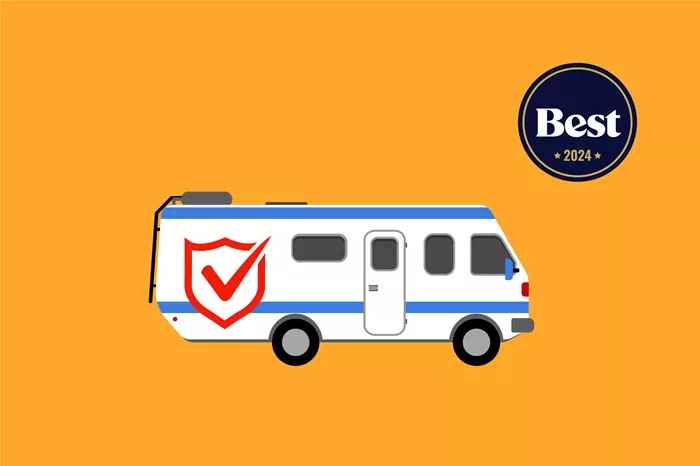When you own an RV trailer in Canada, protecting it with the right insurance is a smart decision. RV trailer insurance helps safeguard your vehicle against damages, theft, and accidents, providing you with peace of mind as you travel across the beautiful landscapes of Canada. In this comprehensive insurance guide, we’ll explore everything you need to know about RV trailer insurance in Canada, including coverage options, cost, factors that affect rates, and how to compare policies to find the best deal for your needs.
What is RV Trailer Insurance?
RV trailer insurance is a type of coverage specifically designed for recreational vehicles (RVs) and their trailers. This insurance provides financial protection in case of accidents, damage, theft, or other incidents involving your RV trailer. In Canada, just like with other types of vehicles, RV trailers need to be insured to meet legal requirements and to ensure that you’re covered in case of unexpected events.
It is important to note that RV trailer insurance can differ from traditional vehicle insurance. The coverage options and premiums may vary based on several factors, such as the size of the trailer, its value, where it is used, and whether it is used for personal or business purposes. Whether you’re using your RV trailer for a family road trip or as a mobile business, having the right insurance coverage is crucial to protecting your investment and your safety.
Why Do You Need RV Trailer Insurance in Canada?
Insurance is essential for any vehicle, and RV trailers are no exception. RV trailers are expensive assets, and accidents, thefts, or damages can lead to significant financial losses if you’re not properly covered. In addition to protecting your trailer, RV insurance also helps cover liability if you are involved in an accident that causes harm to another person or property.
In Canada, the law requires that you have insurance if you’re operating any kind of motorized vehicle, including RVs. However, RV trailers are often towed by another vehicle, and while they might not always be required to carry insurance on their own, it is highly recommended. This ensures that you’re covered if something happens while you’re traveling or parked.
Types of Coverage for RV Trailer Insurance
When shopping for RV trailer insurance, it’s important to understand the different types of coverage available. Depending on your needs, you may want to combine multiple types of coverage to fully protect your RV trailer. The most common types of RV insurance coverage in Canada include:
1. Liability Coverage
Liability coverage is a crucial component of any RV trailer insurance policy. It helps cover the cost of damage or injuries you cause to others while operating your RV trailer. In Canada, liability coverage is often mandatory by law and is essential to protect your financial interests in case of an accident.
2. Collision Coverage
Collision coverage protects your RV trailer if it is damaged in a collision, whether you are at fault or not. This coverage will help pay for repairs or replacement costs, depending on the severity of the damage.
3. Comprehensive Coverage
Comprehensive coverage offers protection against damages that aren’t related to a collision, such as theft, vandalism, fire, or natural disasters. This coverage ensures that you’re financially protected against a wide range of events that could damage your RV trailer.
4. Comprehensive Liability Insurance
Comprehensive liability insurance provides protection if you’re responsible for injuring someone or damaging their property while driving or operating your RV trailer. This type of coverage ensures you won’t have to bear the financial burden alone.
5. Contents Coverage
Contents coverage protects the personal belongings inside your RV trailer. If you have valuable items, such as electronics, furniture, or clothing, inside your trailer and they are damaged, this coverage will help pay for the repairs or replacements. This is an important add-on to consider, especially for those who frequently travel with their RV trailers.
6. Uninsured/Underinsured Motorist Coverage
Uninsured or underinsured motorist coverage helps protect you if you’re involved in an accident with a driver who doesn’t have sufficient insurance coverage. This type of protection ensures that you won’t have to pay out-of-pocket for damages if the other driver is not adequately insured.
7. Roadside Assistance Coverage
Roadside assistance is an essential addition to your RV trailer insurance policy. This coverage provides help in case of mechanical breakdowns, tire changes, fuel delivery, or even towing if your RV trailer becomes disabled while on the road.
Factors That Affect RV Trailer Insurance Rates in Canada
The cost of RV trailer insurance in Canada can vary based on several factors. Understanding these factors can help you find the best rates and ensure you’re not overpaying for coverage. Some of the key factors that impact your RV insurance cost include:
1. Trailer Value
The value of your RV trailer plays a significant role in determining your insurance premium. More expensive trailers, especially newer models or high-end luxury RVs, will generally cost more to insure. The higher the replacement value, the higher your premium is likely to be.
2. Trailer Usage
The way you use your RV trailer can also impact your insurance rates. If you use your RV for business purposes, you may face higher premiums compared to personal use. Additionally, if you use your trailer frequently for long trips, your risk of accidents may increase, which could raise your insurance cost.
3. Trailer Age
Newer RV trailers tend to have lower insurance premiums because they are less likely to break down or need repairs. Older trailers, however, may cost more to insure due to the increased risk of mechanical failure or accidents.
4. Your Driving Record
Your driving history plays a significant role in determining your insurance rates. Drivers with a clean driving record are generally rewarded with lower premiums, while those with past accidents or violations may face higher rates.
5. Location
Where you live can also impact your RV trailer insurance rates. If you’re located in an area with a high risk of theft, vandalism, or natural disasters, your insurance premiums may be higher. Similarly, areas with more traffic or a higher risk of accidents may also lead to higher rates.
How to Compare RV Trailer Insurance Quotes
When shopping for RV insurance, it’s crucial to compare quotes from multiple insurance providers. This will help you find the best deal and ensure that you’re getting the coverage you need at a price that fits your budget. Here are some tips for comparing RV insurance quotes:
- Consider Coverage Options: Make sure that the quotes you are comparing offer similar coverage options. Pay attention to the types of coverage included, such as liability, collision, and comprehensive insurance.
- Look at Deductibles: The deductible is the amount you’ll need to pay out-of-pocket before your insurance kicks in. Lower deductibles may result in higher premiums, while higher deductibles can reduce your premium costs.
- Check for Discounts: Many insurance providers offer discounts for bundling policies, maintaining a good driving record, or installing security devices on your RV. Be sure to ask about any discounts you may qualify for.
- Customer Reviews: Don’t just focus on the price – consider the reputation of the insurance provider. Look for companies that offer trustworthy customer service and prompt claims processing. Reading reviews and checking ratings can help you make an informed decision.
How to Lower Your RV Trailer Insurance Rates
If you’re looking to save money on your RV trailer insurance, there are several strategies you can employ:
- Increase Your Deductible: Opting for a higher deductible can lower your premium. Just make sure that you’re comfortable with the amount you’ll have to pay out-of-pocket if an accident occurs.
- Bundle Policies: Many insurers offer discounts if you bundle your RV trailer insurance with other policies, such as car or home insurance.
- Maintain a Clean Driving Record: A good driving history will not only lower your car insurance rates but also reduce your RV trailer insurance premiums.
- Shop Around: Don’t settle for the first quote you receive. By comparing different providers, you can find the best coverage at the most affordable price.
Conclusion
Having the right RV trailer insurance is essential for protecting both your vehicle and your financial well-being. Understanding the different types of coverage, the factors that affect your premiums, and how to compare quotes will help you make an informed decision when purchasing insurance for your RV trailer in Canada. Whether you’re looking for RV insurance coverage, or trying to compare RV insurance rates, the tips in this article should help you get started on the right track. For the best options and most trustworthy insurance, be sure to explore all available options and find the right policy for your needs.
Related topic:
Is Elite RV Insurance Really Worth It?






















